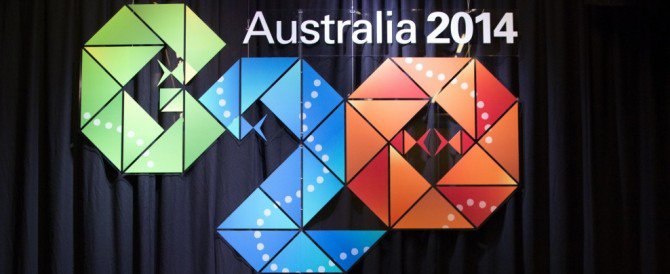World leaders gathering in Brisbane this weekend have had many things on their plate: the war in Ukraine, resurgent Islamic militants in Syria and Iraq, a stuttering global economy. However, in a statement that will pass most of the world by, the G20 heads of states have announced joint action to tackle anonymous company ownership.
This really matters. Global Witness’ investigations follow the money. Whether it’s timber, diamonds, oil or other minerals, we find case after case of dirty money being moved around the world, with the transactions and deals obscured by anonymous company ownership. You can find many more examples on our new interactive map – The Great Rip Off. In my view, anonymous companies are the getaway car for crime and corruption.

The dry sounding “G20 High-Level Principles on Beneficial Ownership”, which were published today, set out what the world’s biggest economies will do to clamp down on secretive company ownership. The detail of these principles isn’t earth-shattering, with the biggest announcement being that companies will have to ensure that they themselves know who their ultimate owners are. This was similar to a commitment made by the smaller G8 last year.
However, these principles represent a big political step forward. World leaders have sent a signal that they take the issue of anonymous company ownership seriously. They will have to lay out in detail what each of their countries is going to do, and we as civil society will hold them to account for their promises.
The principles are a first step. What’s ultimately needed is public registries of who really owns and controls companies and similar structures. The UK has pledged to do this (for companies) and the EU is debating similar measures. Business leaders, such as Richard Branson, Mo Ibrahim, and the Unilever boss Paul Polman, are also backing this movement.
Until company (and trust) ownership information is in the public domain, corrupt politicians will find it easy to steal, arms dealers will find it easy to ship guns to volatile places, and terrorists will find it easy to terrorise. Corruption – enabled by anonymous company ownership – is at the heart of why millions of people live in places rich in natural resources yet are dirt poor.
It is also a key element of the issue that has come to overshadow much of the G20 meeting – the conflict in Ukraine. Global Witness, and the Ukrainian Anti-Corruption Action Centre, revealed earlier this year the web of shell companies, including ones from the UK and Austria, that lay behind Yanukovich’s former presidential palace. Without tackling the corruption that helped spark the events in Ukraine in the first place, it’s difficult to see how any lasting peace is achievable. In fact, only last month, Ukraine itself passed a law to create its own public register of the ultimate owners of companies . It’s time for the G20 to step up and follow suit.
Gavin Hayman is Executive Director of Global Witness.
For more information please call Robert Palmer on +44 (0)7545 645406, or [email protected].